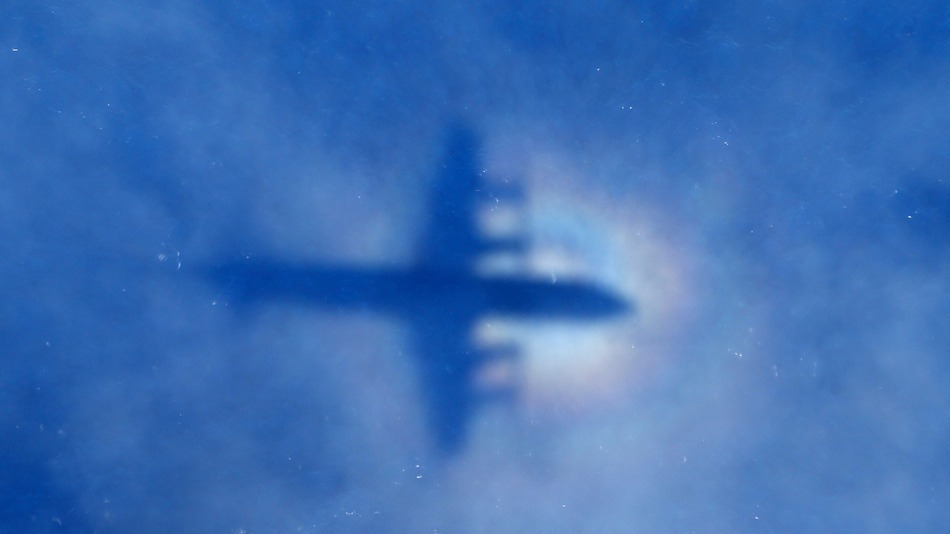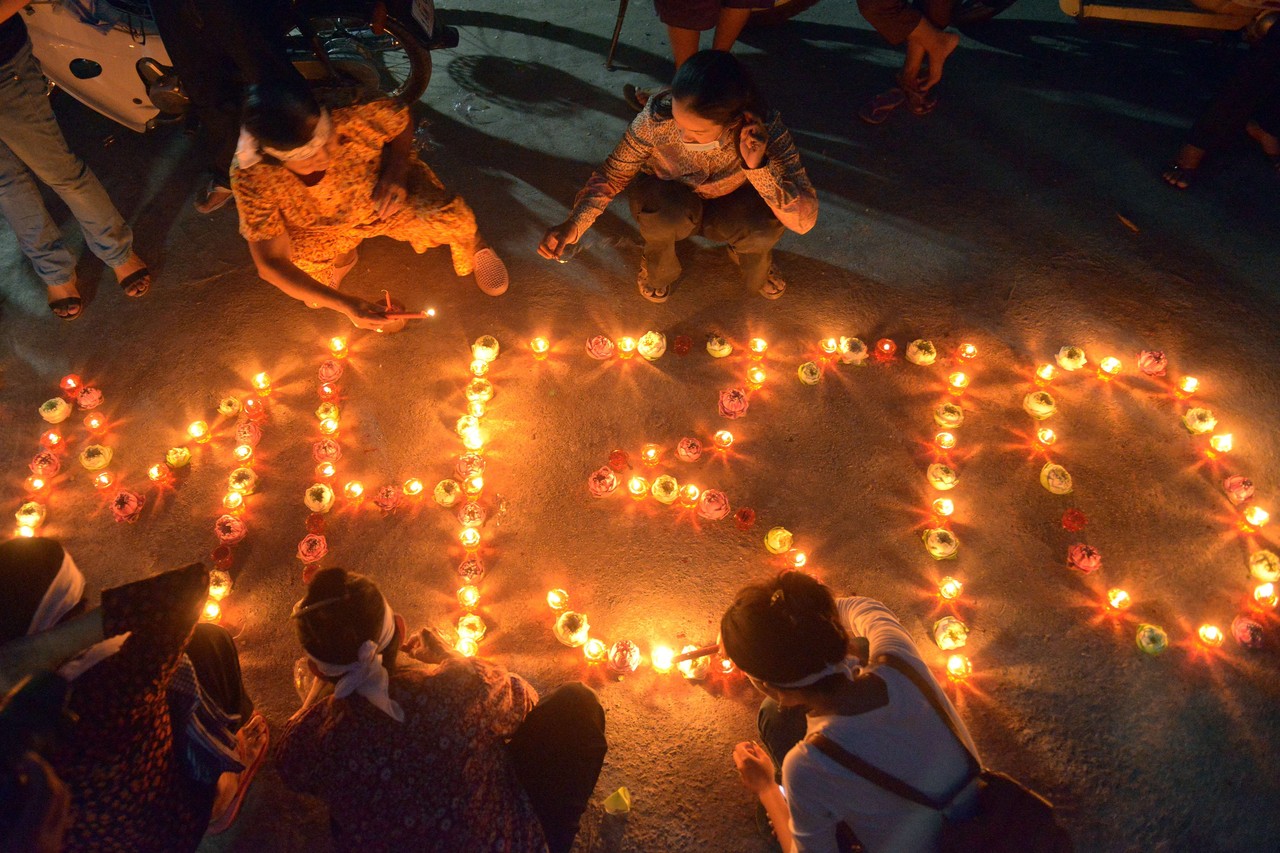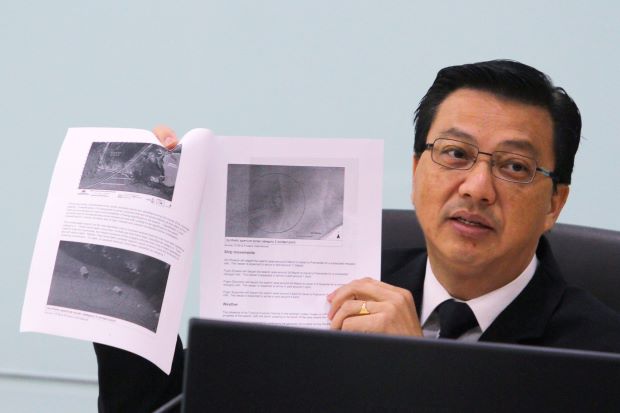What's Being Done To Make Sure Other Planes Do Not Meet The Same Fate As #MH370
Without a single scrap of debris, while the search for the missing MH370 will likely end soon.
It's been a year since MH370 vanished in the sky on 8 March 2014. But nothing has been found of it or the 239 people onboard the flight despite an intensive search that has cost millions of ringgit.
In this 31 March 2014 file photo, a shadow of a Royal New Zealand Air Force P-3 Orion aircraft is seen on low cloud cover while it searches for the missing Malaysia Airlines Flight.
Image via MashabeNow governments are starting to weigh the costs of continuing to search for the missing MH370 as hopes fade and expenses mount
Relatives of passengers on Flight 370 traveled to Malaysia from China to protest the Malaysian government’s declaration that all on board were presumed dead.
Image via The Wall Street JournalThe countries at the center of the search—Australia, Malaysia and China—face a dilemma: No physical trace of the plane has been found, but families of the 239 passengers and crew are demanding answers. Ending, or even scaling back, the mission would signal that officials are effectively giving up—even as the public continues to search for clues and debate amateur theories about the plane’s fate.
wsj.comWhile Malaysia's Transport Minister has said his government remains committed to solving the mystery of MH370, he added it remained unclear what the next steps would be if the deep-sea search now under way comes up empty
Datuk Seri Liow Tiong Lai’s comments, made on the eve of the tragedy’s anniversary, echoed comments made recently by Australian officials who have raised doubts about an open-ended search for the aircraft, believed by experts to have gone down in the southern Indian Ocean.
“The people of Malaysia remember this date. The world community will remember this date — the March 8 disappearance of MH370 — and we are together with the next of kin,” Liow told AFP in an interview. “I would like to say to the next of kin that we will continue to be committed to the search.”
But he said if nothing is found in a zone now being scoured, “then we have to go back to the drawing board” and re-examine all available data used to determine a suspected crash zone.
So while the Transport Minister remains "cautiously optimistic" that the continuing search of a 60,000sq km area in the southern Indian Ocean will find the missing flight, here's what steps are being taken to improve plane tracking should they vanish like MH370
1. MAS has installed a 15-minute data downloading system to keep track on its flights as part of enhancing aircraft security
Malaysia Airlines aircraft are now being tracked by at least 10-minute intervals, confirmed the Department of Civil Aviation. Its director-general Datuk Azharuddin Abdul Rahman said Boeing 777 aircraft would automatically report to MAS every 15 minutes while other planes would report every 10 minutes.
“MAS, on its own initiative, has lessened the time of reporting of the aircraft communications and reporting system (ACARS),” he told reporters here yesterday. “Boeing 777 is now being reported every 15 minutes (while) the A330, A380 and 737-400 are being reported every 10 minutes.”
2. Malaysia has emerged a key proponent for a real-time tracking system following the disappearance of flight MH370 a year ago
"(Data downloading) every 15 minutes, very close to real time. For aircraft and aviation industry, 15 minutes signal downloading and data processing is of great importance," Transport Minister Liow Tiong Lai told a media briefing in conjunction with MH370's first anniversary. Liow said Malaysia was currently working with Australia on an aircraft tracking system and welcomed Australia's efforts to improve the system.
thestar.com.myAirservices Australia, a government-owned agency that manages the country's airspace, will work with its Malaysian and Indonesian counterparts to test the new method, which would enable planes to be tracked every 15 minutes, rather than the previous rate of 30 to 40 minutes, Australian Transport Minister Warren Truss said. The tracking would increase to 5 minutes or less if there is a deviation in the plane's movements.
The trial is expected to use satellite-based positioning technology already on board 90 percent of long-haul aircraft that transmits the plane's current position and its next two planned positions, said Airservices Australia chairman Angus Houston, who helped lead the search for Flight 370.
3. Malaysia to spend 700 million Ringgit to improve civilian radars
Malaysia plans to invite tenders for a planned 700 million ringgit (US$190 million) upgrade of its civilian radar systems and is improving the coordination between civilian and military agencies, Mr. Liow said.
While the minister was cautious, and said that the radar upgrades were a continuing exercise as air traffic grows, the disappearance of Flight 370 did expose weaknesses in radar systems and systems to track airliners in flight.




